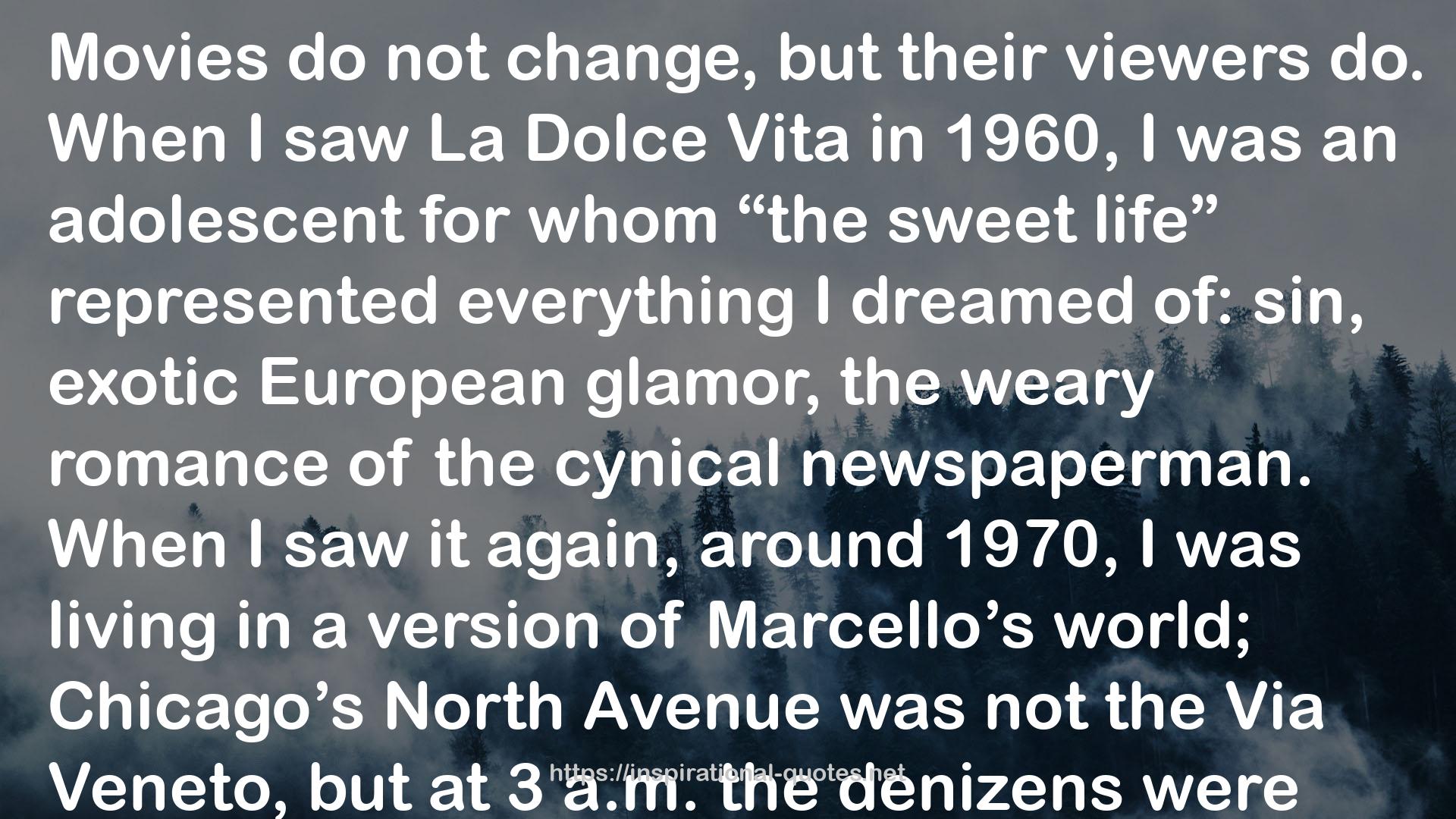" Movies do not change, but their viewers do. When I saw La Dolce Vita in 1960, I was an adolescent for whom “the sweet life” represented everything I dreamed of: sin, exotic European glamor, the weary romance of the cynical newspaperman. When I saw it again, around 1970, I was living in a version of Marcello’s world; Chicago’s North Avenue was not the Via Veneto, but at 3 a.m. the denizens were just as colorful, and I was about Marcello’s age.
When I saw the movie around 1980, Marcello was the same age, but I was 10 years older, had stopped drinking, and saw him not as a role model but as a victim, condemned to an endless search for happiness that could never be found, not that way. By 1991, when I analyzed the film a frame at a time at the University of Colorado, Marcello seemed younger still, and while I had once admired and then criticized him, now I pitied and loved him. And when I saw the movie right after Mastroianni died, I thought that Fellini and Marcello had taken a moment of discovery and made it immortal. "
Image for Quotes
